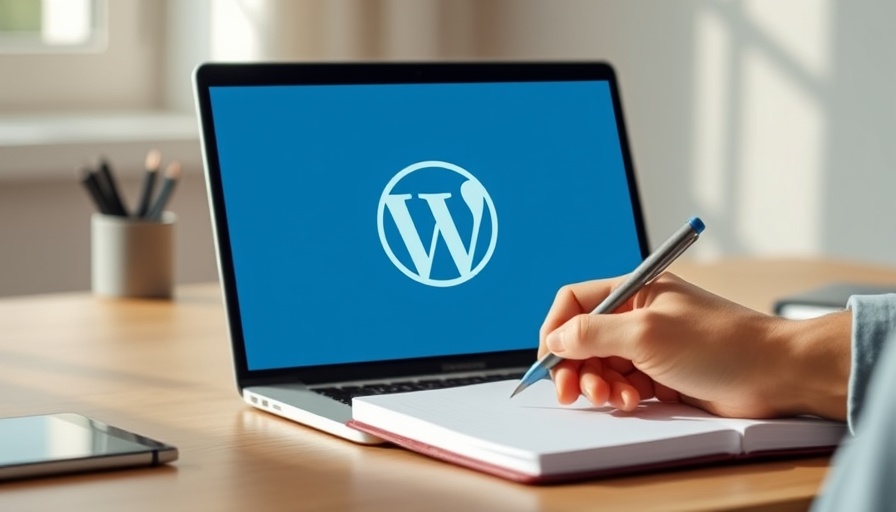
Understanding WordPress Backups: A Security Essential
Keeping your WordPress site backed up is crucial. Imagine the frustration of losing your hard work due to hacking, server failures, or accidental deletions. In this digital age, where data is one of the most valuable assets, understanding how to effectively back up your WordPress site isn't just a technical detail; it's a necessity for peace of mind. Here, we’ll explore the types of backups, their importance, and how you can best secure your data.
Types of WordPress Backups: Choosing What’s Right for You
When it comes to backing up a WordPress site, you’ll encounter several options. The two main types are full backups, which restore the entire site to its previous state, and incremental backups, which only restore new or modified items. Considering your site’s needs, choosing between manual and automated backups can make a significant difference.
Manual backups require more involvement and knowledge about when to back up, which can sometimes lead to missed opportunities. On the other hand, automated backups can regularly save your data without you needing to manage the process actively. A solution that allows for automated backups is typically recommended, especially if you’re frequently changing content.
Why Regular WordPress Backups Are Non-Negotiable
Many users might wonder why they should prioritize backups in the first place. The reasons rely primarily on risk management. WordPress is an evolving platform, susceptible to threats like hacking and malware attacks. A clean backup not only helps in quick recovery but can also expedite your efforts to restore your site to its previous glory if something goes awry.
Moreover, unexpected server crashes can lead to severe data loss. If your web host encounters issues and you have no backup in place, recovering your site can be an arduous process, if feasible at all. Therefore, consider a regular backup schedule as a part of your digital hygiene.
Tips for Effective WordPress Backup Management
To maximize the safety of your WordPress site, follow these key tips:
- Select Reliable Backup Tools: Look for tools that offer seamless integration with WordPress and comprehensive backup options, such as scheduling and restoring capabilities.
- Regularly Test Your Backups: Once you have set up your backup system, testing your backup restoration process is crucial to ensuring that it works when you need it the most.
- Save Backups in a Safe Location: Apart from storing backups on your web server, consider cloud services for added security and ease of access.
The Emotional Importance of Backing Up
For many website owners, the site reflects not just a business endeavor but a personal journey. Understanding that you have a safety net can provide immense peace of mind. Imagine the relief of knowing that your hard work is protected against the unpredictable nature of the digital realm.
Next Steps: Taking Action to Secure Your WordPress Site
To ensure your website's longevity and integrity, take proactive measures. Start by researching and selecting a reliable backup solution that meets your site’s unique requirements. Automate your backups, and make it a point to regularly test them. The sense of security you gain will enhance your productivity and allow you to focus on what matters most: building your online presence.
Backing up your WordPress site might feel like another item on your long to-do list, but the protection it offers will far outweigh the time invested. Take action today and safeguard your digital future.
 Add Row
Add Row  Add
Add 




Write A Comment